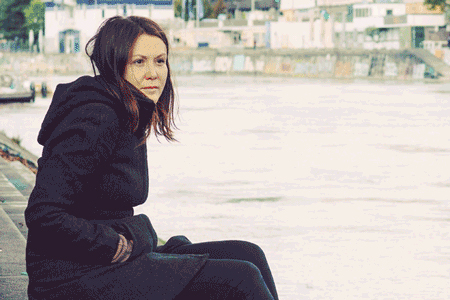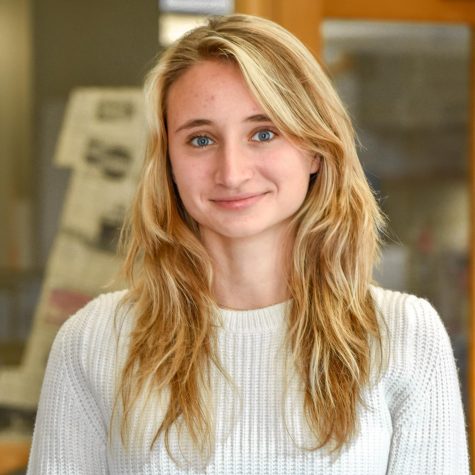In April 2018, translator and author Mascha Dabić came to campus to speak at the third annual Austrian-American “PODIUM Dialog” in the Max Kade Center for German Studies. Now, she is back on campus, and this time, for the entire semester.
The Lafayette College German department recently welcomed Dabić to campus as the Max Kade writer in residence.
“That was really, really a great opportunity. Later I received an email from Margarete Lamb-Faffelberger asking me if I would like to be the next Max Kade writer in residence,” Dabić said.
Margarete Lamb-Faffelberger is a German professor and director of the Max Kade Center for German Studies. The Max Kade writer in residence teaches during their time at Lafayette, but with a light course load allowing them to still work on their own projects.
“Whatever you agree on to teach, the literature and language…it’s not really such a heavy workload so you have plenty of time for your writing,” Dabić said. “Doing your stuff or simply getting inspiration, because after all, New York City is so close, and that is very inspiring.”
Dabić will be staying in the Max Kade Haus for German Studies and Visiting Scholars which opened in 2018. The Max Kade Haus houses visiting academics, writers and artists to encourage cultural exchange.
Dabić will be working with a German professor in a class about translation studies this semester. During this course she will be working on making her students familiar with what translation and interpretation is.
“They’re working on my novel, and my novel is about interpreting, so that’s also another source for them to learn about interpretation. And of course, I speak German to them so my main part is to be the German speaker there,” Dabić explained.
Dabić first got inspiration for her successful German novel “Reibungsverluste” while writing her PhD thesis on the role of the interpreter in psychotherapy.
“While I was writing my PhD on the topic, I felt I cannot really express what I wanted to express in a scientific language because it’s so set, you have to work a certain way,” Dabić said. “Empirical and rely on sources and all that. At some point I realized that I would need fiction to express certain observations that I had, so I found myself writing a novel on the same topic.”
The majority of Dabić’s work is in translating, however she credits her novel for many of her recent opportunities.
“The novel is the one that really kind of opened the doors in the sense that this is how I ended up here now at Lafayette,” Dabić said.



























































































































